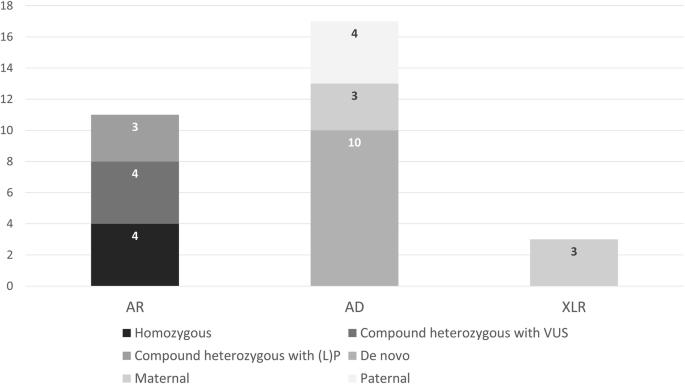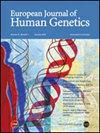产前不确定意义变异(VUS):报告还是不报告?
IF 4.6
2区 生物学
Q2 BIOCHEMISTRY & MOLECULAR BIOLOGY
引用次数: 0
摘要
产前外显子组测序(pES)具有显著的诊断率,但时间压力和有限的表型信息使得解释不确定意义变异(VUS)比在产后环境中更具挑战性。我们分享我们的经验,产前报告高度可疑的VUS。我们回顾性分析了荷兰两家学术医院在怀孕期间向父母报告的经pES鉴定的VUS的妊娠情况。在研究期间,在27例妊娠中报告了28个基因的31个VUS。根据产前表型与基因相关诊断的一致性,将病例分配到五组之一。VUS的意义包括对亲代携带者进行临床评估(N = 4),对先证者进行额外筛查(N = 2),影响亲代决策(N = 11)和/或促使确认性检测(N = 10)。对现有数据的重新分析导致7个变异重新分类,其中5个被升级为(可能)致病。虽然我们不建议常规披露,但我们的数据表明,产前报告VUS在特殊情况下是有价值的。采用了严格的选择,只有少数报告的VUS被重新分类为(可能的)致病性。因此,对每个VUS病例进行仔细的个人评估仍然是必要的,多学科会议应该是产前VUS管理的一个组成部分。本文章由计算机程序翻译,如有差异,请以英文原文为准。

Prenatal Variants of Uncertain Significance (VUS): to report or not to report?
Prenatal Exome Sequencing (pES) has a significant diagnostic yield but time pressure and limited phenotypic information make interpretation of Variants of Uncertain Significance (VUS) more challenging than in a postnatal setting. We share our experiences of prenatal reporting of highly suspicious VUS. We retrospectively analyzed pregnancies in which VUS identified by pES were reported to parents during pregnancy in two Dutch academic medical hospitals. During the study period, 31 VUS in 28 genes were reported in 27 pregnancies. Cases were assigned to one of five groups based on consistency of prenatal phenotypes with gene-associated diagnoses. The implications of VUS included clinical evaluation of parental carriers (N = 4), additional screening of proband (N = 2), influencing parental decision-making (N = 11) and/or prompting confirmatory testing (N = 10). Reanalysis with currently available data resulted in reclassification of seven variants, five of which were upgraded to (likely) pathogenic. Although we do not recommend routine disclosure, our data suggest that prenatal reporting of VUS can be valuable in exceptional cases. Stringent selection was applied and only a minority of reported VUS was reclassified as (likely) pathogenic. Therefore, a careful individual assessment of each VUS case remains imperative and multidisciplinary meetings should be an integral part of prenatal VUS management.
求助全文
通过发布文献求助,成功后即可免费获取论文全文。
去求助
来源期刊

European Journal of Human Genetics
生物-生化与分子生物学
CiteScore
9.90
自引率
5.80%
发文量
216
审稿时长
2 months
期刊介绍:
The European Journal of Human Genetics is the official journal of the European Society of Human Genetics, publishing high-quality, original research papers, short reports and reviews in the rapidly expanding field of human genetics and genomics. It covers molecular, clinical and cytogenetics, interfacing between advanced biomedical research and the clinician, and bridging the great diversity of facilities, resources and viewpoints in the genetics community.
Key areas include:
-Monogenic and multifactorial disorders
-Development and malformation
-Hereditary cancer
-Medical Genomics
-Gene mapping and functional studies
-Genotype-phenotype correlations
-Genetic variation and genome diversity
-Statistical and computational genetics
-Bioinformatics
-Advances in diagnostics
-Therapy and prevention
-Animal models
-Genetic services
-Community genetics
 求助内容:
求助内容: 应助结果提醒方式:
应助结果提醒方式:


